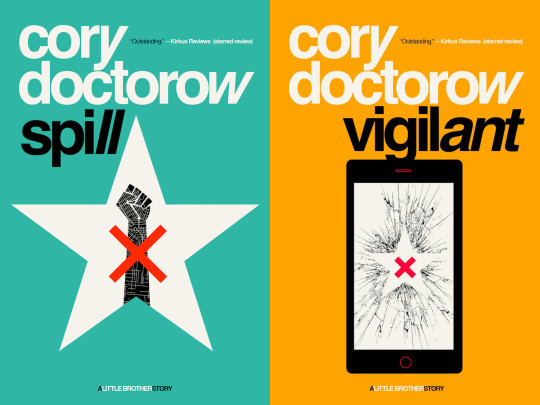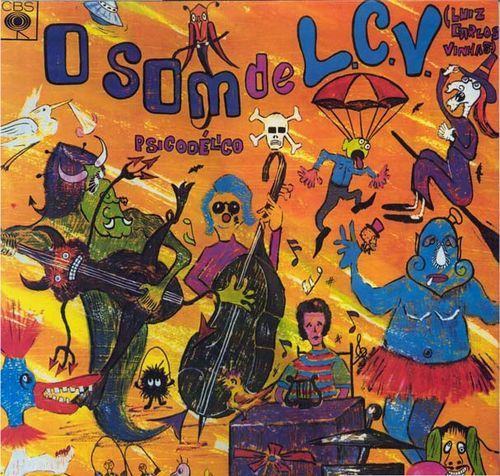#ben tre
Explore tagged Tumblr posts
Text
Những việc liên quan đến mình nhất định phải hoàn thành cho tốt.

Những việc không liên quan đến mình tuyệt đối đừng sân si ! ❤️
1 note
·
View note
Text
Epic Systems, a lethal health record monopolist

Epic Systems makes the dominant electronic health record (EHR) system in America; if you're a doctor, chances are you are required to use it, and for every hour a doctor spends with a patient, they have to spend two hours doing clinically useless bureaucratic data-entry on an Epic EHR.
How could a product so manifestly unfit for purpose be the absolute market leader? Simple: as Robert Kuttner describes in an excellent feature in The American Prospect, Epic may be a clinical disaster, but it's a profit-generating miracle:
https://prospect.org/health/2024-10-01-epic-dystopia/
At the core of Epic's value proposition is "upcoding," a form of billing fraud that is beloved of hospital administrators, including the "nonprofit" hospitals that generate vast fortunes that are somehow not characterized as profits. Here's a particularly egregious form of upcoding: back in 2020, the Poudre Valley Hospital in Ft Collins, CO locked all its doors except the ER entrance. Every patient entering the hospital, including those receiving absolutely routine care, was therefore processed as an "emergency."
In April 2020, Caitlin Wells Salerno – a pregnant biologist – drove to Poudre Valley with normal labor pains. She walked herself up to obstetrics, declining the offer of a wheelchair, stopping only to snap a cheeky selfie. Nevertheless, the hospital recorded her normal, uncomplicated birth as a Level 5 emergency – comparable to a major heart-attack – and whacked her with a $2755 bill for emergency care:
https://pluralistic.net/2021/10/27/crossing-a-line/#zero-fucks-given
Upcoding has its origins in the Reagan revolution, when the market-worshipping cultists he'd put in charge of health care created the "Prospective Payment System," which paid a lump sum for care. The idea was to incentivize hospitals to provide efficient care, since they could keep the difference between whatever they spent getting you better and the set PPS amount that Medicare would reimburse them. Hospitals responded by inventing upcoding: a patient with controlled, long-term coronary disease who showed up with a broken leg would get coded for the coronary condition and the cast, and the hospital would pocket both lump sums:
https://pluralistic.net/2024/06/13/a-punch-in-the-guts/#hayek-pilled
The reason hospital administrators love Epic, and pay gigantic sums for systemwide software licenses, is directly connected to the two hours that doctors spent filling in Epic forms for every hour they spend treating patients. Epic collects all that extra information in order to identify potential sources of plausible upcodes, which allows hospitals to bill patients, insurers, and Medicare through the nose for routine care. Epic can automatically recode "diabetes with no complications" from a Hierarchical Condition Category code 19 (worth $894.40) as "diabetes with kidney failure," code 18 and 136, which gooses the reimbursement to $1273.60.
Epic snitches on doctors to their bosses, giving them a dashboard to track doctors' compliance with upcoding suggestions. One of Kuttner's doctor sources says her supervisor contacts her with questions like, "That appointment was a 2. Don’t you think it might be a 3?"
Robert Kuttner is the perfect journalist to unravel the Epic scam. As a journalist who wrote for The New England Journal of Medicine, he's got an insider's knowledge of the health industry, and plenty of sources among health professionals. As he tells it, Epic is a cultlike, insular company that employs 12.500 people in its hometown of Verona, WI.
The EHR industry's origins start with a GW Bush-era law called the HITECH Act, which was later folded into Obama's Recovery Act in 2009. Obama provided $27b to hospitals that installed EHR systems. These systems had to more than track patient outcomes – they also provided the data for pay-for-performance incentives. EHRs were already trying to do something very complicated – track health outcomes – but now they were also meant to underpin a cockamamie "incentives" program that was supposed to provide a carrot to the health industry so it would stop killing people and ripping off Medicare. EHRs devolved into obscenely complex spaghetti systems that doctors and nurses loathed on sight.
But there was one group that loved EHRs: hospital administrators and the private companies offering Medicare Advantage plans (which also benefited from upcoding patients in order to soak Uncle Sucker):
https://www.ncbi.nlm.nih.gov/pmc/articles/PMC8649706/
The spread of EHRs neatly tracks with a spike in upcharging: "from 2014 through 2019, the number of hospital stays billed at the highest severity level increased almost 20 percent…the number of stays billed at each of the other severity levels decreased":
https://oig.hhs.gov/oei/reports/OEI-02-18-00380.pdf
The purpose of a system is what it does. Epic's industry-dominating EHR is great at price-gouging, but it sucks as a clinical tool – it takes 18 keystrokes just to enter a prescription:
https://jamanetwork.com/journals/jamanetworkopen/fullarticle/2729481
Doctors need to see patients, but their bosses demand that they satisfy Epic's endless red tape. Doctors now routinely stay late after work and show up hours early, just to do paperwork. It's not enough. According to another one of Kuttner's sources, doctors routinely copy-and-paste earlier entries into the current one, a practice that generates rampant errors. Some just make up random numbers to fulfill Epic's nonsensical requirements: the same source told Kuttner that when prompted to enter a pain score for his TB patients, he just enters "zero."
Don't worry, Epic has a solution: AI. They've rolled out an "ambient listening" tool that attempts to transcribe everything the doctor and patient say during an exam and then bash it into a visit report. Not only is this prone to the customary mistakes that make AI unsuited to high-stakes, error-sensitive applications, it also represents a profound misunderstanding of the purpose of clinical notes.
The very exercise of organizing your thoughts and reflections about an event – such as a medical exam – into a coherent report makes you apply rigor and perspective to events that otherwise arrive as a series of fleeting impressions and reactions. That's why blogging is such an effective practice:
https://pluralistic.net/2021/05/09/the-memex-method/
The answer to doctors not having time to reflect and organize good notes is to give them more time – not more AI. As another doctor told Kuttner: "Ambient listening is a solution to a self-created problem of requiring too much data entry by clinicians."
EHRs are one of those especially hellish public-private partnerships. Health care doctrine from Reagan to Obama insisted that the system just needed to be exposed to market forces and incentives. EHRs are designed to allow hospitals to win as many of these incentives as possible. Epic's clinical care modules do this by bombarding doctors with low-quality diagnostic suggestions with "little to do with a patient’s actual condition and risks," leading to "alert fatigue," so doctors miss the important alerts in the storm of nonsense elbow-jostling:
https://www.ncbi.nlm.nih.gov/pmc/articles/PMC5058605/
Clinicians who actually want to improve the quality of care in their facilities end up recording data manually and keying it into spreadsheets, because they can't get Epic to give them the data they need. Meanwhile, an army of high-priced consultants stand ready to give clinicians advise on getting Epic to do what they need, but can't seem to deliver.
Ironically, one of the benefits that Epic touts is its interoperability: hospitals that buy Epic systems can interconnect those with other Epic systems, and there's a large ecosystem of aftermarket add-ons that work with Epic. But Epic is a product, not a protocol, so its much-touted interop exists entirely on its terms, and at its sufferance. If Epic chooses, a doctor using its products can send files to a doctor using a rival product. But Epic can also veto that activity – and its veto extends to deciding whether a hospital can export their patient records to a competing service and get off Epic altogether.
One major selling point for Epic is its capacity to export "anonymized" data for medical research. Very large patient data-sets like Epic's are reasonably believed to contain many potential medical insights, so medical researchers are very excited at the prospect of interrogating that data.
But Epic's approach – anonymizing files containing the most sensitive information imaginable, about millions of people, and then releasing them to third parties – is a nightmare. "De-identified" data-sets are notoriously vulnerable to "re-identification" and the threat of re-identification only increases every time there's another release or breach, which can used to reveal the identities of people in anonymized records. For example, if you have a database of all the prescribing at a given hospital – a numeric identifier representing the patient, and the time and date when they saw a doctor and got a scrip. At any time in the future, a big location-data breach – say, from Uber or a transit system – can show you which people went back and forth to the hospital at the times that line up with those doctor's appointments, unmasking the person who got abortion meds, cancer meds, psychiatric meds or other sensitive prescriptions.
The fact that anonymized data can – will! – be re-identified doesn't mean we have to give up on the prospect of gleaning insight from medical records. In the UK, the eminent doctor Ben Goldacre and colleagues built an incredible effective, privacy-preserving "trusted research environment" (TRE) to operate on millions of NHS records across a decentralized system of hospitals and trusts without ever moving the data off their own servers:
https://pluralistic.net/2024/03/08/the-fire-of-orodruin/#are-we-the-baddies
The TRE is an open source, transparent server that accepts complex research questions in the form of database queries. These queries are posted to a public server for peer-review and revision, and when they're ready, the TRE sends them to each of the databases where the records are held. Those databases transmit responses to the TRE, which then publishes them. This has been unimaginably successful: the prototype of the TRE launched during the lockdown generated sixty papers in Nature in a matter of months.
Monopolies are inefficient, and Epic's outmoded and dangerous approach to research, along with the roadblocks it puts in the way of clinical excellence, epitomizes the problems with monopoly. America's health care industry is a dumpster fire from top to bottom – from Medicare Advantage to hospital cartels – and allowing Epic to dominate the EHR market has somehow, incredibly, made that system even worse.
Naturally, Kuttner finishes out his article with some antitrust analysis, sketching out how the Sherman Act could be brought to bear on Epic. Something has to be done. Epic's software is one of the many reasons that MDs are leaving the medical profession in droves.
Epic epitomizes the long-standing class war between doctors who want to take care of their patients and hospital executives who want to make a buck off of those patients.

Tor Books as just published two new, free LITTLE BROTHER stories: VIGILANT, about creepy surveillance in distance education; and SPILL, about oil pipelines and indigenous landback.


If you'd like an essay-formatted version of this post to read or share, here's a link to it on pluralistic.net, my surveillance-free, ad-free, tracker-free blog:
https://pluralistic.net/2024/10/02/upcoded-to-death/#thanks-obama

Image: Flying Logos (modified) https://commons.wikimedia.org/wiki/File:Over_$1,000,000_dollars_in_USD_$100_bill_stacks.png
CC BY-SA 4.0 https://creativecommons.org/licenses/by-sa/4.0/deed.en
#pluralistic#ehrs#robert kuttner#tres#trusted research environments#ben goldacre#epic#epic systems#interoperability#privacy#reidentification#deidentification#thanks obama#upcoding#Hierarchical Condition Category#medicare#medicaid#ai#American Recovery and Reinvestment Act#HITECH act#medicare advantage#ambient listening#alert fatigue#monopoly#antitrust
820 notes
·
View notes
Text
#cho thuê nhà bạt không gian#cho thue nha bat khong gian#cho thuê nhà bạt sự kiện#cho thue nha bat su kien#thuê nhà bạt sự kiện#thue nha bat su kien#nhà bạt không gian#nha bat khong gian#nhà bạt sự kiện#nha bat su kien#bến tre#ben tre
1 note
·
View note
Text

Cai Mon Orchad Village, Chợ Lách District, Ben Tre province, southern Vietnam: Cai Mon Orchard Village is considered as the kingdom of bonsai in Vietnam, and the cradle of fruit trees in South Vietnam, with fruit ready for visitors in any season. Located on the bank of the Tien River in Tien Thuy village, Vinh Thanh Commune, Cho Lach District, Ben Tre Province, Cai Mon’s professional village annually supplies products such as durians, mangosteens, mangoes, longans and varieties of citrus.
81 notes
·
View notes
Text
150: Luiz Carlos Vinhas // O som psicodélico de L.C.V.

O som psicodélico de L.C.V. Luiz Carlos Vinhas 1968, CBS (Bandcamp)
This album is so fucking good, ay ay ay. Pianist Luiz Carlos Vinhas was a founding member of the bossa nova movement who played with the instrumental trio Bossa Três; as a sideman for Jorge Ben and many others; and released a handful of solo records, of which his ’64 debut Novas Estruturas (New Structures) is the most acclaimed—though it’s sadly as desperately rare as the rest of his catalogue. A fine album in its own right, Novas Estruturas is laid back bossa jazz that will class up any joint lucky enough for it to be played in, but 1968’s O som psicodélico de L.C.V. (The Psychedelic Sound of L.C.V.) is on a different level. In the four years since his debut, Vinhas has clearly drawn influence from the burgeoning Tropicália movement. If L.C.V.’s not quite as deliciously off-meds as Gilberto Gil or Tom Zé’s releases from the same year, it’s at least their equal in colour and pure festive pleasure.
youtube
The trio of Vinhas originals on the A-side testify to the album’s carnivalesque range: on “Tanganica” (possibly named for a province in the Congo) simulated birdcalls scream around a twanging electric guitar, samba percussion, and a series of stirring trumpet solos; on the militant “Yê-Melê” (which Sérgio Mendes would cover the following year), the music switches between pounding Afro-Cuban piano and strafing organ runs, while a chorus of female vocalists and a group of trumpeters take turns riling up the audience; “Zize-Baio” (Google Translate shrugs its shoulders at me) is pure pop, with a rising instrumental hook that continues to build pleasure until the song cuts just over two minutes in and you feel a little ruffled it’s over so soon. But life goes on, and Vinhas’s band throw everything at you: a stunning rendition of Horace Silver’s “Song to My Father,” a trio of inventive medleys on the B-side that find time for Ary Barroso and “Chatanooga Choo-Choo” alike, the attack of pure mania that is the motormouthed “O Dialogo” (another Vinhas original), and on and on.
Only reissued for the first time in 2020 by Mad About Records, my copy is a weird bootleg that appears to be from ’68 and is identical to the hyper-rare original release, aside from differently coloured labels on the disc itself. Considering the price of bossa nova original pressings, I feel lucky to have it, and though I’m no expert in the genre, it’s hard to imagine this ever falling from its high perch among my favourites.
150/365
#luiz carlos vinhas#bossa nova#samba#tropicalia#jazz fusion#brazilian music#music review#vinyl record#'60s music#south american music#jorge ben#sergio mendes#bossa tres
6 notes
·
View notes
Text
j adore faire du game art surtout quand je joue a des jeux et -putaing le voroi noise partout
#ahhhhhhhh les beaux trail standard de unity dans les mvs de switch#j ai des moments ou je regarde les fx de h0nkai st4r r4ail et je me dit putain cest cheap#ooops#les vieux jeux cest drole car tu peut voire comment cest contruit comme les bricks de base sont exposer#dans le premier RE ou jai trouver beaucoup de truc deplaceable car le ratio des texture etait different et mon daron de comprenais pas#bon ben cest pas grave#euuu jai essayé de faire plus propre mon ecriture car sur le himemimir cetait tres ummmmmmm illisible avec beaucoupbeaucoup de faute de#frappe et d autre connerie#moth chitters
2 notes
·
View notes
Photo

#la vita e' ingiusta#ma sará un altro maschio quindi tra 20 anni avremmo non uno ben TRE lollo pelle____
1 note
·
View note
Text
Trần Thịnh chuyên nhận thiết kế website, clone web giao diện từ sapo, haravan
#sotaydulichvietnam #web3s
Trần Thịnh chuyên nhận thiết kế website, clone web giao diện từ sapo, haravan về wordpress hay php thuần giá rẻ. Với hơn kinh nghiệm 15 năm về nghề website như CSS, HTML, Code. Nên Quý Vị hoàn toàn yên tâm về độ uy tín của Thịnh. Nói không với Scam Lừa Đảo. Quy trình làm việc: Nhận yêu cầu thiết kế mới hoặc clone website từ web nào cho tên miền cụ thể Xem xét và báo giá qua Zalo Khách đồng ý giá…
#thiet ke web an giang#thiet ke web bac lieu#thiet ke web ben tre#thiet ke web binh duong#thiet ke web can tho#thiet ke web dong nai#thiet ke web hau giang#thiet ke web long an#thiet ke web soc trang#thiet ke web tay ninh#thiet ke web vinh long
0 notes
Text

Cai Mon flower village, Chợ Lách District, Ben Tre province, southern Vietnam: Cai Mon ornamental flower village - Cho Lach is not only a commercial area but also a famous Ben Tre tourist destination, especially attracting tourists who love flowers. In the days leading up to early spring, the flower garden becomes more vibrant with thousands of different species of flowers blooming brightly. Chợ Lách is a rural district of Bến Tre province in the Mekong Delta region of Vietnam. Wikipedia
81 notes
·
View notes
Text
E anche oggi un'altra persona si vuole ammazzare perché ha scoperto solo ora come si vive drasticamente differentemente sulle dating apps in base a quale sia il tuo genere sessuale
1 note
·
View note
Text








Tre Hale | Schon! | Ben Duggan | July 2023
1 note
·
View note
Text
Tag Drop
#//The mark they saw on my collarbone...Desires#//Burn all the files...ooc post#//You wanting me...Ships#//If you don't recognize yourself that means you did it right...Visage#//Dear reader the greatest of luxuries is your secrets...Headcanons#//We need heroes...Matt Murdock#//People call me Foggy...Foggy Nelson#//Best damn avocados...Nelson and Murdock#//Not everyone deserves a happy ending...Wilson Fisk#//Wrote the hell out of the news...Ben Urich#//You gotta admit who you are...Frank Castle#//I want to see the best version of myself again...Billy Russo#//Tres grande avocados…Nelson Murdock and Page
0 notes